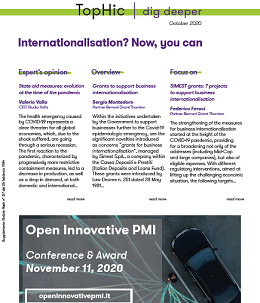-
Transactional advisory services
Find out more about the transactional advisory services of Grant Thornton Financial Advisory Services
-
Valuations
Find out more about the valuations services of Grant Thornton Financial Advisory Services
-
Mergers and acquisitions
Find out more about the merger and acquisition services of Grant Thornton Financial Advisory Services
-
Forensic and investigation services
Find out more about the forensic and investigation services of Grant Thornton Financial Advisory Services
-
Recovery & reorganisation
Find out more about the Recovery & reorganisation services of Grant Thornton Financial Advisory Services
-
Business risk services
Find out more about the business risk services of Grant Thornton Financial Advisory Services
-
Business consulting
Find out more about the business consulting services of Grant Thornton Financial Advisory Services
-
Capital market
Capital market
-
Corporate and business tax
Find out more about our corporate and business tax services.
-
Direct international tax
Find out more about our direct international tax services.
-
Global mobility services
Find out more about our global mobility services.
-
Indirect international tax
Find out more about our indirect international tax services.
-
Transfer pricing
Find out more about our transfer pricing services.
-
Litigation
Our lawyers and accountants can manage all defense measures provided not only by the Italian law, but also by EU regulations and conventions
-
Family business
Find out more about our Family business services.
-
Legal
The client can be assisted in every need and with the same care both on important operations or disputes and on simple matters

-
Back office outsourcing
Find out more about our Back office outsourcing services
-
Business process outsourcing
Find out more about our business process outsourcing services.
-
Compilation of financial statements
Find out more about our compilation of financial statements services.
-
Tax compliance
Find out more about our tax compliance services.
-
Electronic invoicing
Find out more about our electronic invoicing services
-
Electronic storage
Electronic storage is an archiving procedure that guarantees the legal validity of a digitally stored electronic document
-
Revaluation of corporate assets
Find out your civil and fiscal revaluation of tangible, intangible and financial assets
-
Human resources consulting
Find out more about our human resources consulting services.
-
Payroll
Find out more about our payroll services.
-
HR News
HR News the monthly information newsletter by Grant Thornton HR
-
Cybersecurity
GT Digital helps clients structure information security management internal functions, also through partially or totally outsourced functions
-
Agile and Programme Management
GT Digital provides support in the adoption and implementation of different portfolio management
-
Robotic Process Automation
Our “BOT Farm” can rely on digital workers able to help clients in routine activities, allowing employees to deal with more added-value activities
-
Data strategy and management
GT Digital can support clients in seizing the opportunities offered by Big Data, from the definition of strategies to the implementation of systems
-
Enterprise Resource Planning
We support clients in selecting the most appropriate ERP System according to their specific needs, helping them also understand licensing models
-
IT strategy
GT Digital supports clients in making strategic choices, identifying innovation opportunities, comparing themselves with competitors
-
IT service management
We can support with software selection and with the implementation of dedicated tools for the management of ICT processes
-
DORA and NIS 2
The entry into force of the DORA Regulation and NIS2 represents a major step towards the creation of a harmonised regulatory framework
Within the initiatives undertaken by the Government to support businesses further to the COVID-19 epidemiologic emergency, are the significant novelties introduced as concerns “grants for business internationalisation”, managed by Simest S.pA., a company within the Cassa Depositi e Prestiti (Italian Deposits and Loans Fund).
These grants were introduced by Law Decree n. 251 dated 28 May 1981 (converted with amendments by Law n. 394 dated 29 July 1981) further to which a revolving fund (so-called “Revolving fund 394”) was set up, aimed at granting subsidised loans to businesses exporting to extra-EU Countries. Over the years, many regulatory interventions have been made on these loans.
As mentioned above, in order to face the effects of the COVID-19 epidemiologic emergency, the Government introduced, after almost 40 years from the creation of said revolving fund, significant major amendments to the loans supporting internationalisation.
The so-called “Cura Italia” Decree (Law Decree n. 18 dated 17 March 2020) actually introduced under art. 72 the possibility to grant, in addition to the subsidised loan, a non-repayable co-financed loan, initially up to 20% - 40% of the granted loans and, starting from 17 September 2020, further to the European Commission’s authorisation, up to 50% of the same loans with a maximum limit of Euro 800,000.
Further news have then been introduced by art. 48 of the “Relaunch Decree” (Law Decree n. 34 dated 19 May 2020), which provides for that:
- the resources of the fund be further increased by Euro 200 million for 2020;
- until 31 December 2020, the loans be exempted, upon the applicant’s request, from the provision of a guarantee;
- the Committee in charge of granting the loans be authorised to temporarily double the maximum financing ceiling provided, for applications submitted by 31 December 2021;
- until 31 December 2021, subsidised loans, non-repayable co-financed loans and guarantees can also be granted, on a temporary basis, also beyond the limits provided for by European de minimis aid provisions.
Moreover, on 11 June 2020, the Decree of the Minister of foreign affairs and international cooperation, jointly with the Minister of economic development and the Minister of economics and finance, introduced the extension of the scope of loans to interventions referred to other EU member States previously excluded, as loans were granted only for initiatives in extra-EU Countries.
Finally, on 31 July 2020, with Resolution SA.57891 - 2020/N dated 31/07/2020, the European Commission besides authorising the increase of non-repayable amounts up to 50%, authorised an extension not only of the possible recipients, but also of the types of admissible expenses for the seven different types of projects for which businesses can obtain these loans.
Specifically, until 31 December 2020, all businesses with registered office in Italy and at least two approved and filed Financial Statements can obtain loans for the following programmes supporting the internationalisation process:
- capitalisation of exporting companies;
- participation in internationals fair, exhibitions and entrepreneurial missions;
- programmes for the introduction into Foreign Markets;
- Temporary Export Manager (TEM);
- development of e-commerce;
- feasibility studies;
- technical assistance programmes.
It is specified that, as provided for under the Decree of the Ministry of economic development dated 7 September 2016, the subsidised rate is equal to 10% of the EU reference rate and, in particular, for the month of October 2020 is equal to 0.074%.


